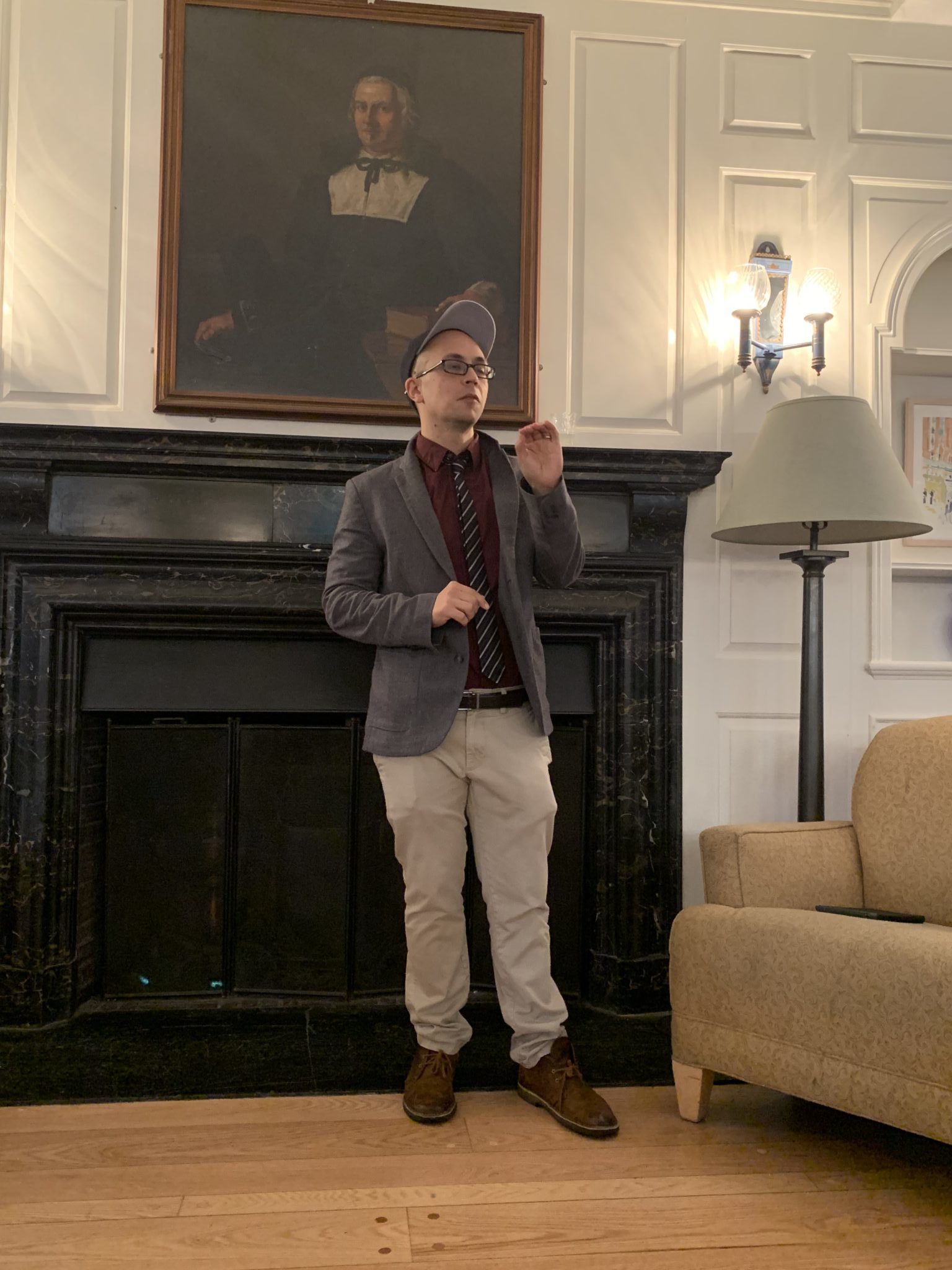
Emily Tian
Adam Serwer, a journalist for The Atlantic, is committed to telling the truth.
But at the Davenport College Tea on Monday, Serwer said telling the truth can be complicated, especially when people regard their beliefs as facts.
At the event, Serwer spoke about the impact of public memory to a rapt audience of approximately 70. He has been a staff writer for The Atlantic since 2016, and his work there has focused on race relations and the Trump administration. His pieces earned him a Hillman Prize this year, and the Hillman Foundation described him as “a defining voice of the Trump era.” Prior to his work at The Atlantic, Serwer was the national editor of BuzzFeed News and also reported for MSNBC and the Washington Post.
“How you remember your past, and if you remember your past, shapes your future,” Serwer said.
The talk, sponsored by the Poynter Fellowship, was the first Davenport College Tea of the year. Following a brief welcome by Davenport Head of College John Witt and professor Emily Bazelon, Serwer discussed the concept of collective memory. For example, even when fewer and fewer individuals can recall the Holocaust, shared phrases like “never again” keep the urgency of the memory alive, he explained.
But Serwer added that public memory is not infallible.
“What happens when public memory is warped?” he asked.
Serwer discussed America’s uglier past, from immigration policies that Hitler admired to efforts to paint the South’s Confederate past in rosy hues. He often writes about the ideological and historical precedents to Trumpism, disputing interpretations that contend that President Trump is an aberration to the American political system. He emphasized that though it may seem like the country is encountering issues it has never confronted before, “cruelty has always been with us.”
Still, Serwer said he does not think that it is his responsibility to persuade his critics. Doing so, he said, undermines the integrity of his reporting. He explained that it tends to “warp arguments in ways that are dishonest.” Instead, he said, he stands by his personal assignment of telling the truth — if not to willing ears now, then to future generations.
Serwer also drew on stories of his home state, Texas. Two monuments stand mere feet apart in front of the state capitol in Austin. One places bronze statues of Confederate soldiers on a pedestal; the other is the African American History Memorial, dedicated in 2016 to commemorate the impact of African Americans on the state. Serwer explained how the monuments represent two different accounts of Texas’ Confederate past.
“One says, ‘never happened,’ and the other says, ‘never again,’” Serwer said.
After his remarks, Serwer fielded questions from audience members, who asked about the effects of political desensitization and the need to distinguish between different historical narratives.
“Adam just seems like one of the strongest voices in journalism in the Trump era,” Witt said, citing Serwer’s widely circulated 2018 essay “The Cruelty is the Point,” which argues that Trump and his supporters have been unified by their cruelty to those they fear.
Bazelon said she previously invited Serwer to speak to a class she teaches at Yale Law School called “Public Interest and the Media.” At the time, she suggested that the broader Yale community should have a chance to listen to his ideas, Bazelon explained. She said she was impressed by Sewer’s historical expertise.
J.D. Wright ’23 came to the talk after hearing that Serwer wrote for The Atlantic.
“I liked hearing him talk about how voting discrimination and gerrymandering in particular affects our political climate,” Wright said.
The Poynter Fellowship hosts journalists on campus throughout the year.
Emily Tian | emily.tian@yale.edu







